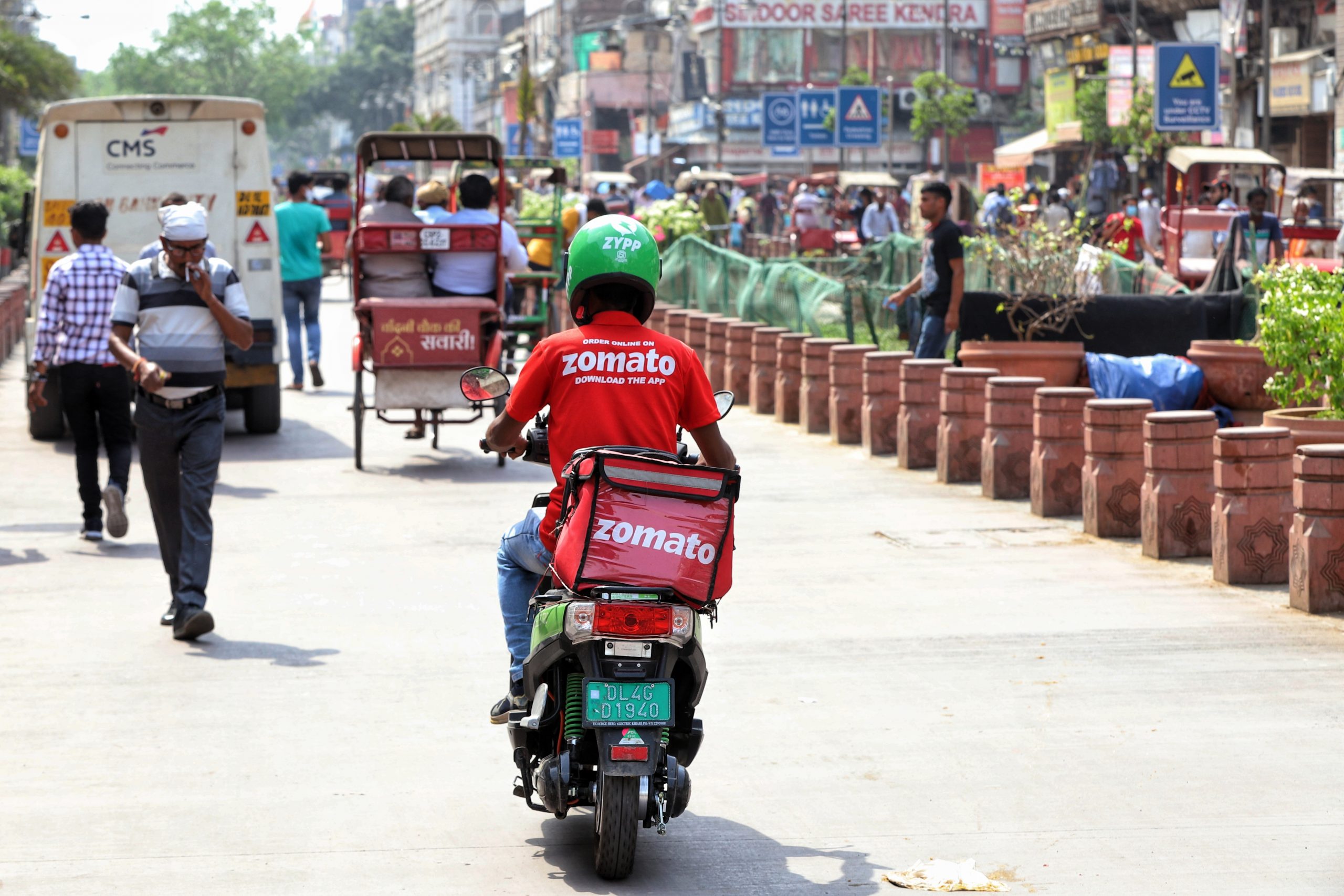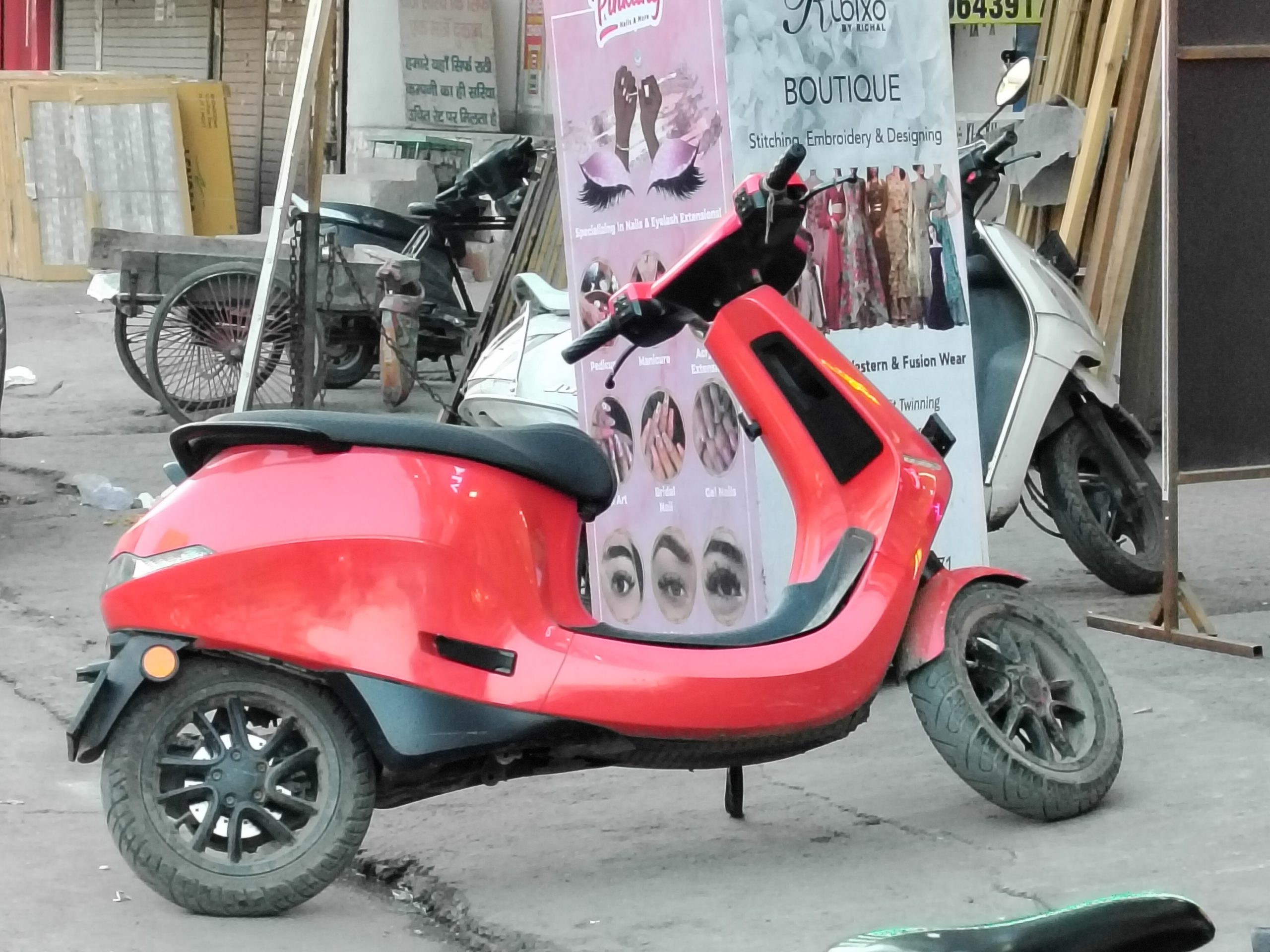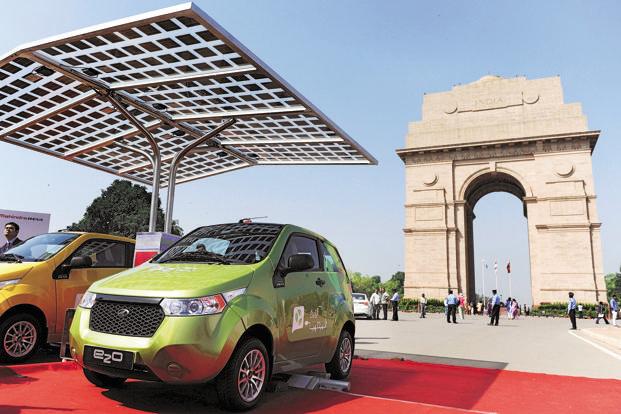In the first week of January, Delhi’s Transport Minister, Kailash Gahlot, revealed a significant statistic: electric vehicles accounted for an unprecedented 19.5% of total vehicular sales in the national capital for December. This translates to 73,610 electric vehicles out of the 6,57,312 vehicles sold during that period in Delhi.
Environmental concerns are propelling the shift to electric vehicles as people seek cleaner transportation options to reduce carbon emissions and combat climate change. Governments worldwide offer incentives such as tax credits, rebates, and favourable regulations to promote EV adoption, making them more appealing to consumers.
Surge in EVS
Rahul Verma, a teacher in Delhi, expresses satisfaction with his choice of electric car.
“In the bustling city, the silence of an electric vehicle is the gamechanger. Commuting through heavy traffic is now a calm experience without the constant hum of a traditional engine,” he shares.

“The lower operational costs and government incentives make economic sense. I appreciate the ecofriendly aspect, knowing I contribute less to air pollution. The shift to an electric car has made my daily commute not just efficient but also aligned with a cleaner, greener future.”
In February 2021, Chief Minister Arvind Kejriwal inaugurated the Switch Delhi initiative, aiming to disseminate awareness regarding the ecological advantages of electric vehicle adoption. The overarching goal is to transform the national capital into a pollution-free environment.
Priyadarshi Alok, Assistant Programme Manager at Shakti Sustainable Energy Foundation, explains the foundation’s role as a knowledge partner to a study conducted by IRADe in 2022.
“The study focussed on early adopters of Electric Vehicles (EVs) in Delhi, conducting primary surveys of 500 respondents across distinct segments, including current private users, institutional EV-4W users, e-rickshaws, and prospective EV consumers. The study aimed to assess user behaviour and the impact of EV charging on Delhi’s power demand,” he says.
“The survey covered socioeconomic characteristics, vehicle ownership patterns, and charging behaviour. The results indicated that early adopters of EV 2W in Delhi mostly belong to lower household expenditure groups. Early adopters of EV 4W, with higher household expenditures, also showed a preference for EVs for regular short-distance commuting, particularly to workplaces. The study not only assessed current user behaviour but also conducted a prospective consumer survey to identify factors influencing the choice of buying or not buying EVs,” he adds.
Driving factors
Gurugram-based Yatish Yadav, a digital creator and auto enthusiast, highlights the Delhi EV Policy’s incentives across various EV categories.

“The Delhi EV Policy offers a range of incentives to promote electric vehicles (EVs) across various categories. For E-cycles, there is a 25% purchase incentive (up to Rs 5,500) and an additional INR 2,000 for the first 1,000 owners. Two-wheelers receive a purchase incentive of Rs 5,000/kWh (up to Rs 30,000), with an extra scrapping incentive. E-Auto Rickshaws enjoy a Rs 30,000 purchase incentive and potential scrapping benefits. Four-wheelers receive Rs 10,000/kWh (up to Rs 1,50,000) with further conditions post 1000 cars. Light commercial vehicles and E-Rickshaws/E-Carts also have purchase incentives. Eligible models can be acquired through approved dealers.”
Regarding two-wheelers, Ola EV two-wheelers have seen significant sales. “Ola Electric has a range of two-wheelers starting at Rs 1.50 lakh for the affordable motorcycle, going up to Rs 3.50 Lakh for the top-end Diamond Head. They have got some exciting new models coming up in 2024, including the Motorcycle, M1 Cruiser, Diamond Head, M1 Adventure, and Cyber Racer,” shares Anuj Thakur, 30, a salesman at Ola EV showroom in south Delhi.
According to Anuj, currently, it is the young generation which is more excited to buy our product. It is because of the technology that is catching the attention in the model like Ola S1 pro. The youth want to have it not just as a means of transportation but a unique style to make a mark in their respective circle. It has got cutting edge technology including music system, sensor-based lock system, and others.
The COVID-19 pandemic led to a surge in e-bike purchases in 2020, as people opted for personal transport over crowded public transit.
Over the past two years, there has also been a significant surge in the sales of private electric cars in Delhi, as indicated by data from the Delhi government. In 2021, 1,526 private electric cars were sold, rising to 3,114 in 2022. The momentum continued in 2023, with a notable increase to 5,800 electric cars sold in the capital city.
Electric car sales witnessed a remarkable growth, surging by 268% to surpass 18,000 units in the first half of FY2023. Tata Motors dominated with an 85% market share, driven by its Nexon EV and Tigor EV models. MG Motor India secured the second position with an 8% share, primarily with its ZS EV. The data suggests a positive trend in EV adoption, with increasing demand and a potential shift from traditional internal combustion engine vehicles.
Shefali Srivastava, a sales representative at Tata Motors, throws light on the types of consumers of EV, “In Delhi, environmentally conscious individuals, tech enthusiasts, and those seeking cost-effective and low-maintenance transportation are active purchasers of electric cars. Additionally, government incentives and policies promoting clean energy influence potential buyers.”
She further adds, “Tech enthusiasts are particularly drawn to electric cars in Delhi due to the advanced features and cutting-edge technology they offer. Electric vehicles often come equipped with state-of-the-art infotainment systems, smart connectivity features, and over-the-air updates.”
“The integration of artificial intelligence in electric vehicle systems, like intelligent energy management, can appeal to those interested in the intersection of technology and transportation. Additionally, the ongoing innovations in electric vehicle technology contribute to the allure for tech-savvy individuals.”
Tech innovations and future launches
Morris Garages India (MG) has introduced the 2023 MG ZS EV and 2023 MG Comet EV. Upcoming launches from Maruti Suzuki and Toyota, including the eVX, indicate a promising future for electric vehicles in Delhi. The market is witnessing demand for electric scooters, with the Suzuki Burgman Street being a popular choice.
Mohammad Anas, also known as ‘unzip Delhi’, took a test drive of their MG comet for a few days. Sharing his experience he says, “I took it around for a week, during walks, recess, sourcing trips and meetings. The compact design was a boon to cruise through heavy traffic and narrow bylanes of purani Dilli. And in fact, the spacious interiors allowed me to accommodate friends as we headed out for dinner after work.”
The interested buyers and tech geeks of the capital feel that electric vehicles have a bright future as the companies are coming up with innovations every day. While the youth are attracted to the advanced features, older generation find EVs to be a departure from the limited options available to them at that time.
Nadim Asrar, 60, is planning to buy an EV (scooty) as he wants to enjoy roaming around the home and neighbourhood area. He stresses on the fact that EVs are now bought more for easy availability of loans at the showroom.
Maruti Suzuki, the country’s leading automaker, is poised to unveil its inaugural electric vehicle, the eVX, in the Indian market come March next year, as per Autocar India’s report. The eVX will see a counterpart from Toyota, mirroring the Glanza-Baleno and Urban Cruiser-Brezza relationships.
Beyond catering to the domestic market, Maruti intends to export the eVX. Company officials have substantiated the launch within the 2024-25 financial year, with the vehicle’s pricing slated for announcement in early 2025, as per the report’s findings.
“Currently, Delhi residents are demanding the Suzuki Burgman Street, an Electric scooter with a starting price of Rs 94,000. It is available in India in 3 variants and 12 colours,” informs Sanjay, proprietor of Umang Motors in Pitampura. Mostly, these people are business owners of medium scale, including wholesale suppliers in the capital.
Amit Kumar, an EV consultant in Gurugram, highlights, “In November 2023, Delhi experienced a surge in EV sales, marking 6,154 new registrations, constituting 8% of total vehicle sales. Electric two-wheelers increased by 39% from October, reaching 3,551 units sold. The city embraced electric rickshaws, with 1,511 units sold in August. Sustainable public transportation adoption included 85 new electric buses, and 310 electric three-wheelers were added in the commercial sector. By August 2023, Delhi achieved a significant milestone under its EV policy, recording 1,56,648 electric vehicles sold, showcasing the success of eco-friendly initiatives.”
Impact of EV rental services
The rental services for EVs provided by companies like Yulu and Zypp are an affordable and flexible alternative for users, contributing to the overall adoption of electric vehicles. Delivery executives benefit from reduced petrol costs, enhancing their earnings, while young users find joyrides and recreation, helping normalise EV usage and potentially leading to increased sales as people become more familiar and comfortable with electric mobility options.
Paritosh Sahoo, 27, a Zomato food delivery executive, says, “Switching to electric bikes through Zypp for my Zomato deliveries has been a game-changer. The cost savings on fuel are incredible, and the ease of zipping through traffic on an eco-friendly ride is unbeatable. Considering the reduced maintenance costs and feeling good about contributing to a greener environment, I’m seriously contemplating making my next personal vehicle purchase an electric one. It’s a win-win for both my pocket and the planet!”
In the future, the increased adoption of e-vehicles is likely due to a shift in people’s preferences.
“Seeing more electric vehicles in daily life will act as a visual cue, normalising their presence and showcasing their practicality. The trend of shared transport, coupled with hassle-free services offered by rental companies, will make e-vehicles an attractive and convenient option for many. Additionally, the government’s commitment to environmental goals creates a supportive framework for the expansion of e-vehicle infrastructure,” explains Mohsin Malik, a salesman at Ola showroom in Deoli, south Delhi.
With startups focusing on expanding charging stations and improving battery manufacturing, the concerns related to charging infrastructure and vehicle range will likely diminish. As a result, people’s choices will be informed not only by environmental consciousness but also by the visible success and ease of use demonstrated by the increasing number of electric vehicles on the roads.
Charging infrastructure
Delhi’s EV policy encompasses 13 clauses related to EV charging infrastructure. Currently, 10 clauses are fully operational, two are partially operational, and one is yet to be implemented.
Delhi Transco Limited has initiated India’s largest tender for public charging and swapping stations across 100 locations, involving nearly 900 charging points and 103 battery swapping stations.
The tender, aggregating land parcels from various agencies in Delhi, aims to establish charging and battery swapping stations on these parcels on a concessional basis. Notably, 70% of these land parcels are derived from Delhi Metro parking stations.
“Smart charging, or Vehicle-Grid Integration (VGI), globally succeeds in dynamically managing loads, especially in markets like Delhi. This system allows remote control of electric vehicle (EV) charging, aligning it with grid conditions, such as syncing with solar power peaks to optimize grid management. It can be unidirectional for efficient time-of-use tariff utilization or bi-directional, utilising EV batteries to support the grid during emergencies. The benefits include reduced consumer bills, deferred distribution system costs, enhanced renewable energy integration, and assistance in managing energy imbalances,” notes the study by Jyoti Parikh, Executive Director, IRADe.
Challenges in e-Rickshaw adoption
Lalit, a sales manager at Vande Bharat, highlights challenges faced by battery-operated e-rickshaws. “Insufficient charging infrastructure and prolonged charging times contribute to operational downtime, limiting the efficiency of e-rickshaws. Moreover, varying weather conditions can impact battery performance and lifespan.”

“The initial cost includes the base cost of the e-rickshaw itself, which tends to be higher compared to traditional, non-electric counterparts due to the expense of the battery technology. Additionally, factors such as the quality of the battery, its capacity, and any advanced features contribute to the overall initial cost. While electric rickshaws offer long-term economic benefits through reduced fuel and maintenance costs, the higher initial investment may serve as a barrier for operators and individuals considering the switch from conventional rickshaws to their battery-operated counterparts,” tells Lalit.





